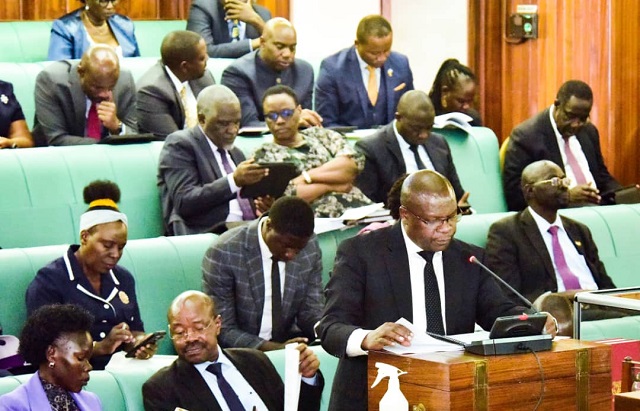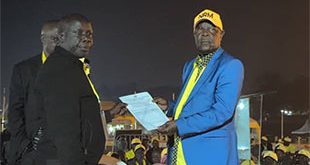
Kampala, Uganda | THE INDEPENDENT | The Budget Framework Paper with proposals of a Shs49.98 trillion budget for Financial Year 2023/2024 has been passed by Parliament.
The passing of the Budget Framework Paper is in line with the requirement of the Public Finance Management Act that sets 01 February as deadline for Parliament to approve it.
The passing of the draft budget in a plenary sitting chaired by Deputy Speaker, Thomas Tayebwa on Tuesday, 31 January 2023, followed a debate by Members of Parliament on the Budget Committee reports on the framework and the budget performance respectively.
The proposed budget will be financed through domestic revenue equivalent to Shs28.8 trillion, budget support amounting to Shs2.4 trillion, domestic borrowing Shs1.6trillion and external project support of Shs8trillion.
The other sources are, domestic refinancing of Shs8.7 trillion and local revenue for local government of Shs238.5 billion.
Government’s key priorities are starting the construction of the Standard Gauge Railway and finalization of the rehabilitation of the Meter Gauge Railway under the Integrated Transport programme.
Government also intends to invest in small-scale solar-powered irrigation as well as addressing climate change and food security under the Agro Industrialization Programme.
The other priorities are constructing power service stations and transmission lines under the Sustainable Energy Development programme and capitalization of Uganda Development Bank and Uganda Development Corporation to continue supporting private sector development, recovery and economic transformation under the Private Sector Development.
Kashonzi County Member of Parliament, Herbert Tayebwa warned against the high expenditure against government’s low revenue.
He said that Uganda should only borrow for investment but not consumptive expenditures.
The Leader of the Opposition, Mathias Mpuuga said that the Budget Framework Paper is silent on the high interest rates on loans.
He wondered how much the country was paying annually as debt repayment for Karuma Hydro Power Dam.
The Deputy Speaker, Thomas Tayebwa expressed worry about the reducing discretionary expenditure despite the growth in revenue estimates.
“This means that we shall have limitations in using our appropriation power to reallocate the budget. For every Shs100collected, over Shs37 is spent on servicing debts,” said Tayebwa.
The Deputy Chairperson of the Budget Committee, Wamakuyu Mudimi said that proposed budgets towards programmes that contribute directly to value addition is only 5.6 per cent of the total budget and only 4.7 per cent of the total budget has been allocated to programmes that contribute towards strengthening of the capacity of the private sector.
Government will now revise the budget estimates based on Parliament’s recommendations and present final estimates to the House by 15 March 2023 for the final budgeting process.
 The Independent Uganda: You get the Truth we Pay the Price
The Independent Uganda: You get the Truth we Pay the Price




The committees should see carefully the issue of salary enhancement for education sector to stop rampant strikes that leads to poor results of learners in exams. Pay them higher according to their levels such that grade III are able to upgrade since most of them have multiple loans that cannot make them raise their heads. Waiting to see where our country Uganda thinks this financial year. They waited since then. Consider them because they are eye openners.